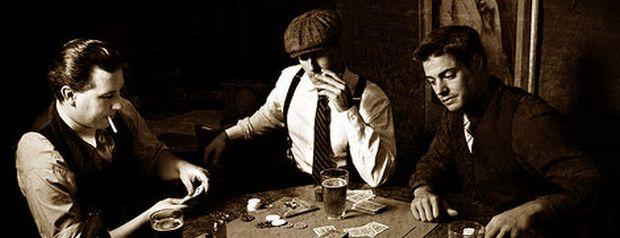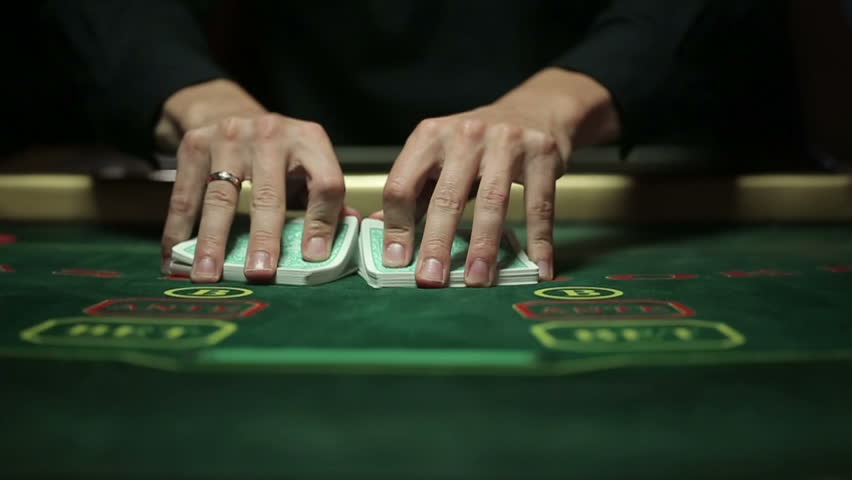Poker Players Have a Lot to Learn From Razz
9 years ago

29 Jun
(Photo: Pokerfed.org)
Razz is one of the most frustratingly swingiest games out there. By its very nature every hand is a drawing hand, and there are a lot of situations that play out pretty much automatically. But that doesn’t mean that razz is devoid of interest. And a few swings never hurt anyone – physically, at least. Razz’s oddities definitely shouldn’t turn you off the game; the average hold'em player might find that those oddities allow you to sharpen up a few specifics in your game, and a more open mind might just enjoy razz for it’s own sake.
Ever since reading about a travelling hi-stakes PL razz game in Antony Holden’s Big Deal, I’ve tried to get my home games playing it, to no avail so far. But now there is help out there, Adam Owen and Ian Shaw, British players who are part of a group of pros who focus on mixed-games, sat down with PokerNews to talk about why they love razz. Validation at last.
Unlike the game in Big Deal, razz nowadays is almost always played with fixed limit betting when it is played at all. It is a seven card stud variant where the lowest hand wins. Aces play low, and straights and flushes do not count against your hand. Therefore the wheel (the A-2-3-4-5 straight) is the best possible hand regardless of suits.
If you’re not familiar with the details of play in seven card stud there are plenty of guides to the rules on the internet. The short version is that everyone is dealt a seven card hand in a series of rounds. The first round is two cards face down and one up. The rest of the cards are dealt one per round, face up until the river card, which is face down. It makes for five rounds of betting with the fixed bet doubling for the last three rounds.

A Beginner’s Game
Owen’s strongest argument for playing razz is its simplicity. For new players you can get them playing as quickly as possible.
It's for sure the easiest game in poker to learn, being competitive in razz is much easier,” Owen told PokerNews, "and if I were to teach a complete beginner the rules of a poker game, I would start with razz.”
There’s some mileage in that idea: lowball games do away with having to memorize the hand rankings at the same time as picking up the sequence of play.
Another reason to learn razz, is that razz is a game in which players often find themselves playing, but without really understanding. This can make for a tasty edge for any player who goes in prepared with a little razz knowledge. Owen says:
A lot of people, when razz comes up in a mixed-game tournament, will say, 'God, I hate this game!' and things like, 'This game has no skill in it. When they say that, you'll immediately know that you've got a slight edge on them."
But like many lowball games it also has a kind of stripped down purity to it, that is less tainted by the vagaries of equity. Owen sees it as a good teaching aid for "a lot of good principles for poker – it teaches you to bluff, to steal, and to resteal."
Remember the caveat though, the edge there is ‘slight’, so be prepared for those swings. If you feel they’ve got a case, then let’s look at how to go about generating that slight edge. Shaw and Owen had some advice on that as well.
Starting Hand Selection
As with holdem, starting hands are the first place to plug your leaks. "A lot of the game is based on third street, as the run-outs tend to be a bit automatic after that," Owen says going on to suggest that beginners should stick to playing three cards under eight to start with.
Three cards seven or lower is a fairly premium hand. A very strong hand would consist of any three wheel cards.”
The thing to remember is that every starting hand needs to hit right. A fact a lot of players forget, “they play a hand like A-2-3 like it's aces in hold'em while you're basically in a flip against 7-6-5.” Shaw chimes in, pointing out that one upshot of this mistake is that people “telegraph the strength of their hand by three-betting on third street a lot, which makes it easier for you to play the hand later on."
Owen also cautions against playing ‘rough’ hands starting out – a rough hand being the highest combination of cards for that hand, for example a rough-eight is the 8-7-6-5-4 low – "rough eights and nines can get troublesome," is how he puts it.

Later Streets
One of the reasons starting hands are so important is that the places where you can gain an advantage on later streets are more limited. Normally, “in stud games fifth street is a very important street because you go from the small bet to the big bet,” Owen explains.
While in razz – compared to stud and stud hi-low – it's less important."
Although Shaw does step in to counter his colleague saying:
There is room for some plays in razz, for sure. It gets down to a lot of reading, when it gets down to steal versus steal, for example. Oftentimes you'll get a really good price to limp on the bring-in. That means you can play a lot of hands, and that allows you to balance and play good hands, bad hands, and mediocre hands.”
Adjusting to the structure of the game is key. Owen even suggests you should even factor in the rake structure to some of your play:
If you can pick up pots on third street in a cash game there's no rake, that's a factor. That's the reason why you won't see a lot of limping in cash games.”
But naturally, the biggest adjustments, as with most poker games, are in tournament play. Unlike holdem where the increasing blinds ramp up aggression, in razz the opposite is true according to Shaw.
It's much better to limp in tournaments versus cash games. In cash games you want to take a more aggressive strategy, and raise most of the time because your stack size is not a consideration."
Owen adds:
In tournaments the antes are generally bigger than in cash games, which makes it good to call the bring-in.”
Which is not to say passivity should be universal. Benefits of the large ante’s also need to be weight up against the fact that:
In tournaments it's good to open hands as well. There are hands that play better when you're heads up... You get to realize your equity more often when you're heads up as opposed to multi-way pots."
With these tips under your belt, do I have any takers for that razz game now? Let us know in the comments.







Comments
You need to be logged in to post a new comment